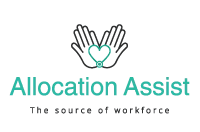[vc_row][vc_column]
-
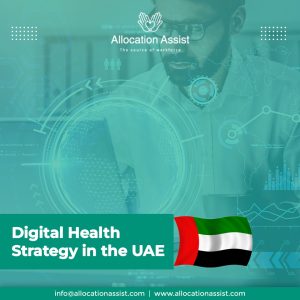
Digital Health Strategy in the UAE
- BY Emilie
Read Articles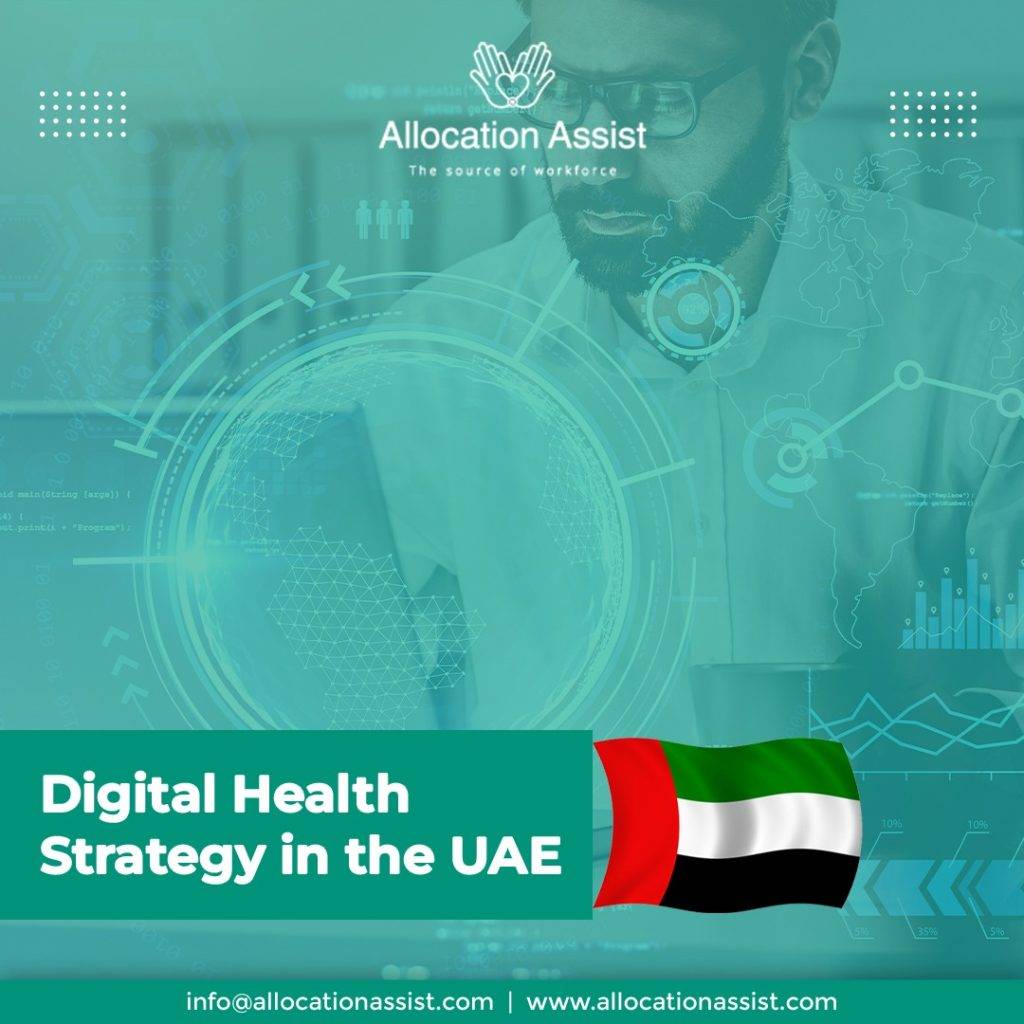
The UAE’s healthcare sector is experiencing rapid development and consistent improvements, particularly in digital transformation.
The UAE’s digital health strategy is enhancing care delivery, evidence-based population health and disease prevention strategies, as well as empowering patients to track their own health and wellbeing. The strategy includes telemedicine, disease surveillance and management, electronic health records and health information exchange.
Electronic Health Information Exchange (HIE) in the UAE
The UAE health authorities including the Ministry of Health and Prevention (MoHAP), Department of Health-Abu Dhabi (DoH), and Dhabi Health Authority (DHA) have collaborated to create and implement a National Unified Medical Record (NUMR) called Riayati.
Riayati is a fully integrated, digitised, and centralised National Unified Medical Record for the UAE healthcare ecosystem. It enables secure sharing, with the use of encryption and password protection, of healthcare information across public and private facilities throughout all the emirates in the UAE.
Riayati has successfully integrated existing health information exchange platforms in Abu Dhabi (Malaffi) and Dubai (Nabidh).
By that beginning of February 2023, the Riayati platform had so far included 1.9 billion medical records for 9.5 million patients, which can be accessed by over 90,000 health service providers in 3,057 medical facilities, including public hospitals, private hospitals, clinics, day care centres, diagnostic centres, and pharmacies.
What are the advantages of a National Unified Medical Record?
- Enables secure access to medical records from anywhere in the country
- Avoids unnecessary duplication of tests and records
- Improves coordination and efficiency of healthcare
- Helps providers to make better medical decisions aligned to patients’ needs
- Empowers patients to access their own health data
- Enables population health analytics, with anonymised data, to provide insights that can be used to improve healthcare for the population of the country
The establishment of a National Unified Medical Record (NUMR) is an important achievement in the UAE’s healthcare sector, as part of its digital transformation strategy aimed at creating a sustainable and efficient healthcare system that provides exceptional services to patients.
-

10 Key Benefits for Doctors Working in Dubai
- BY Emilie
Read Articles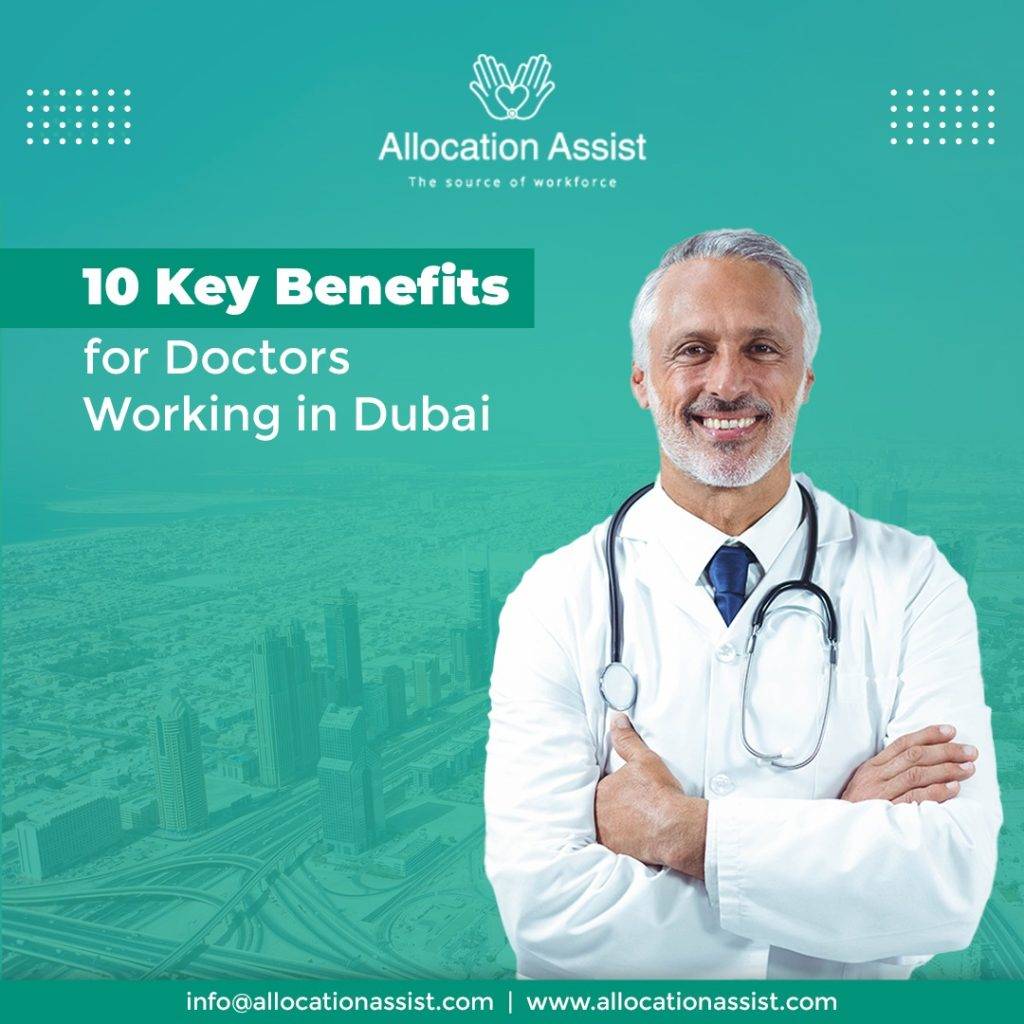
The dynamic and growing UAE healthcare sector offers opportunities for doctors with the right qualifications, skills and experience. Western-trained doctors, especially those with advanced fellowships post-specialisation are particularly sought after.
What are the benefits for doctors working in Dubai?
Tax-free salary
There is no income tax in the UAE, so you get to take home your full salary.
Private health insurance cover
Health insurance cover for employees is mandatory. Some employers may also cover dependents.
Paid annual leave
Paid annual leave entitlement is 25 to 30 days, after completing one year of employment. (Between 6 months and one year, employees are entitled to 2 days per month.)
End of service gratuity
UAE labour law entitles all employees to end-of-service benefits. The gratuity is 21 days of basic salary for an employee who has completed between 1 and 5 years, and 30 days of basic salary for every completed year after 5 years employment.
Visa costs covered
UAE employers are required to pay all costs related to entry visa and residency permit for their employees.
Medical Indemnity Insurance
Professional indemnity insurance will be paid for by your employer.
10 year Golden Visa
All doctors licensed to work in the UAE can now apply for a Golden Visa, allowing them and their immediate family to work, live and study in the country without the need for a sponsor. Golden visas are issued for 10 years and easily renewable.
Return flight at end of employment
Employers are required to cover return flight costs at the start and end of employment.
Work in a growing medical sector
The UAE’s healthcare sector is one of the most rapidly expanding in the region, providing world-class health care for the benefit of the country’s residents and medical tourists.
World class hospitals
The United Arab Emirates has the highest number of JCI accredited hospitals in the Middle East. There has been significant investment in healthcare infrastructure, including state-of-the-art equipment.
Depending on your employer and contract, other non-mandatory benefits such as allowances for accommodation or children’s education may be applicable.
-

Relocating to Dubai?
- BY Emilie
Read Articles
If you are a healthcare professional relocating to Dubai with a young family, one of your main concerns will be getting your children settled at school. Fortunately, there are many excellent international schools in Dubai, with a wide choice of curricula including British, International Baccalaureate (IB), French and American, among other school systems.
Currently, there are 216 private schools offering 17 different curricula in Dubai, and this number is increasing as the population grows. With so much choice, it can become confusing.
What factors should you consider when choosing a school?
School curriculum
Choice of curriculum may be based on your home country, where you are relocating from or future plans for university. Choosing an international school will enable your child to gain accredited and recognised qualifications. Also consider which languages are included in the curriculum and how well the school teaches soft skills such as critical thinking, creativity, problem-solving, and collaboration.
Values and ethos of the school
You can get a feel for a school’s ethos through their website, but scheduling a school visit and talking to teachers and other staff is a better way to decide how well the values of a school align with your own.School Fees
While often less expensive than private school fees in your home country, you will still need to consider the cost. Some doctor’s contracts include an allowance for children’s school fees, but not all.
For most schools in Dubai, fees gradually increase as a child moves up through the school, so are highest for senior years. School fees were frozen or discounted during the COVID-19 pandemic, but are now increasing for 2023-24. A lot of schools offer sibling discounts of around 5 to 10% for younger sibling(s), if you have more than 1 child in the same school. Corporate discounts may also be available, so check with your employer.
Ratings, reviews and recommendations
When choosing a school, consider ratings and reviews. The Knowledge and Human Development Authority (KHDA) is responsible for regulating and inspecting all private schools in Dubai. You can check inspection ratings on their website:
Depending on the school curriculum, other inspections ratings may be available, such as British Schools Overseas (BSO).
Regular parent surveys by the Which School Advisor website can give you an insight into how parents rate different aspects of schools in Dubai. You can also ask family, colleagues or friends with children in Dubai for personal recommendations.
Support for students’ individual needs
Consider how well a school will support your child’s individual learning needs. All schools in Dubai are required to create an inclusive learning environment and provide support for children with different learning needs. You can ask how this policy is put into practice in a particular school. Also find out about class sizes and teacher to student ratio in a school.
School facilities and extracurricular activities
Look at the facilities and support available for sports, art, drama and music, as well as more academic subjects. Some schools include a range of after-school clubs and activities in the fees while some may charge for these.
Location and travel options
Consider not only the distance from home but also travelling time to school, as this can take longer in rush hour. Most schools provide bus transportation at a cost, or you could consider hiring a driver if required.
Availability of places
Some of the more popular schools have waiting lists for particular year groups. It can help to check this early when relocating.
We hope you have found this short guide helpful. It is highly recommended to make a shortlist and visit at least a few schools before making a decision.
Here are some helpful websites to refer to
-

The United Arab Emirates is country with a Vision ...
- BY Emilie
Read Articles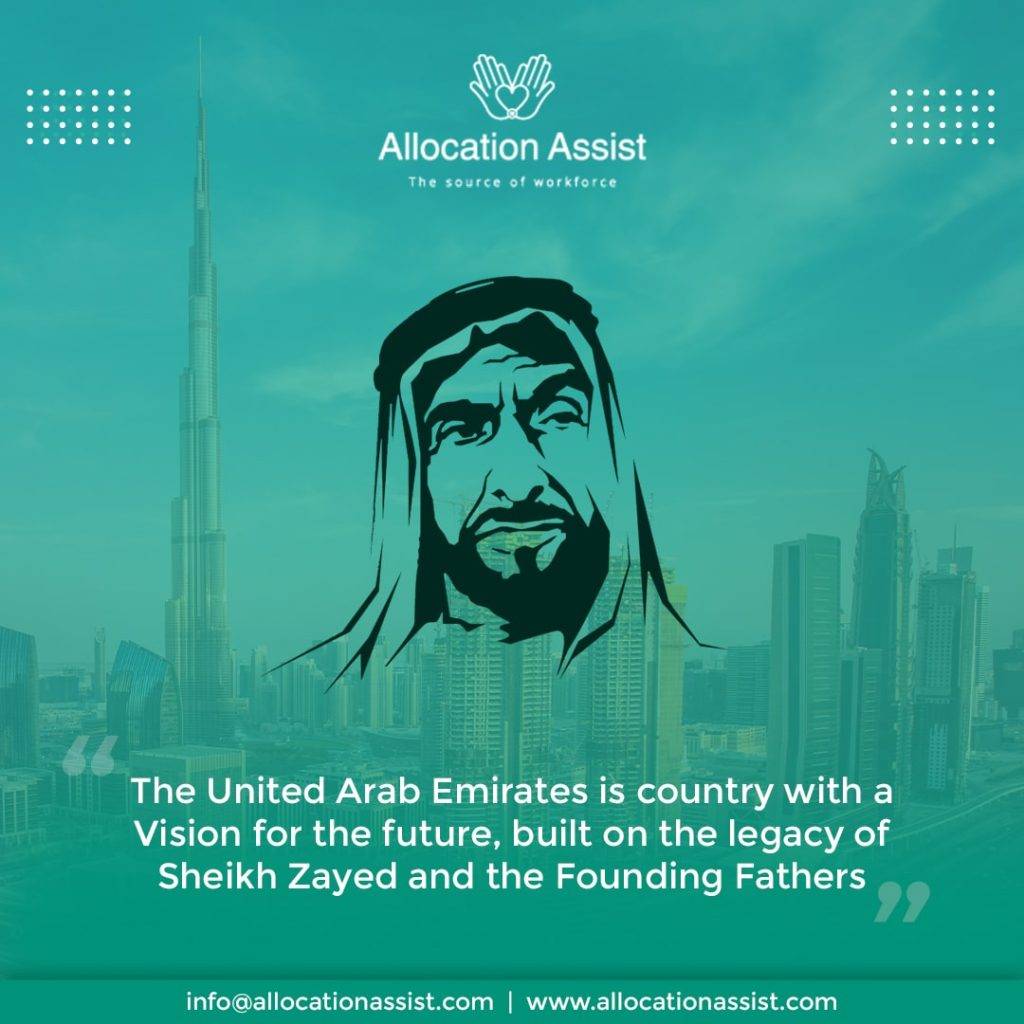
In 2022, the IMD’s World Competitiveness Yearbook ranked the UAE 12th globally and first in the MENA region. The UAE excels in several essential areas, including education, security and safety, cybersecurity, infrastructure, and flexibility of regulations and governance.
The 2022 Expat Insider Survey ranked the UAE first in the Middle East and 6th best country globally for expats to live in.
The United Arab Emirates is still a relatively young country, founded in 1971.
How has the UAE achieved so much in such a short time?
We cannot answer this question without reference to Sheikh Zayed and the other Founding Fathers of the UAE. They not only assisted with the formation of the country as we know it today but their leadership and long-term vision was the foundation for the UAE’s remarkable growth and development.
Since the country’s formation, the UAE leadership has worked strategically to strive for excellence and prosperity for the benefit of the country’s citizens and residents, and contribute constructively to the international community.
Who was Sheikh Zayed?
Sheikh Zayed devoted his life to the service of his people and the creation of a better world. He was known for his deep religious faith, his vision, determination, hard work and generosity at home and abroad. Sheikh Zayed was a humanitarian and philanthropist who contributed to making healthcare more accessible, affordable, and efficient for millions of people across the globe.
https://www.linkedin.com/pulse/zayed-humanitarian-day-how-sheikh-impacted-health care-prof-humaid/
Sheikh Zayed embodied the values of tolerance and unity, ruling by consensus and consultation. A foundation of his philosophy as a leader and statesman was that the resources of the country should be used for the benefit of all citizens. While overseeing the development of the UAE’s infrastructure, he was also concerned about the conservation of natural environment and wildlife.
The principles and philosophy that Sheikh Zayed brought to government remain at the core of the state, and of its policies, today.
As the UAE celebrated its golden jubilee in 2021, government ministers outlined an ambitious vision for the UAE’s next 50 years. The UAE Centennial 2071 sets a course for the UAE to be the world’s leading country by 2071 by fostering an environment for exponential growth. This plan focuses on the four core aspects of education, economy, government development and community adhesion.
-
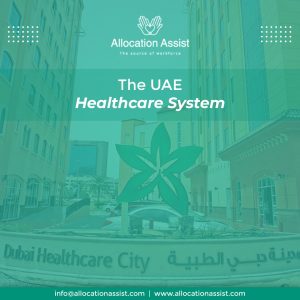
The UAE Healthcare System
- BY Emilie
Read Articles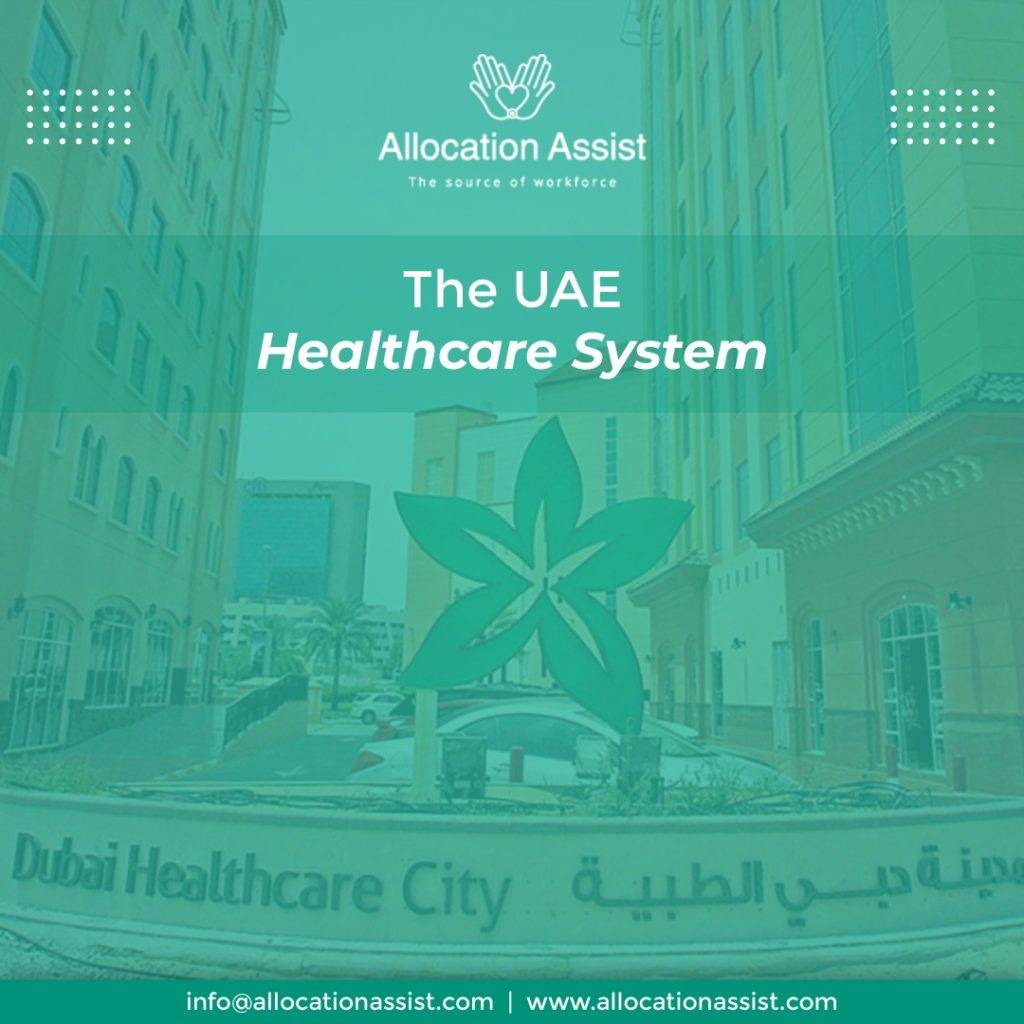
“The health and wellbeing of citizens, residents, and visitors is one of our highest priorities. We have highly qualified national talents, partnerships with leading global medical institutions, as well as clear plans to ensure all members of the community can receive world-class medical treatments.”
His Highness Sheikh Mohammed bin Rashid Al Maktoum
Vice President and Prime Minister of the UAE and Ruler of Dubai
The UAE’s healthcare sector is one of the most rapidly expanding in the region with the highest number of JCI accredited hospitals in the Middle East. In 2022 the UAE’s healthcare system was ranked first among GCC countries, as well as in the top 50 worldwide. It attracts skilled and experienced healthcare professionals from around the world.
Working with leading global institutions to further develop its health care system, the UAE is establishing itself as a major centre for world-class health care for the benefit of the country’s residents and the wider region.
The UAE is a popular destination for overseas patients seeking high quality, accessible medical care. The Medical Tourism Index 2020-21 ranked Dubai as the top destination in the Middle East and in 6th place globally, with Abu Dhabi also in 9th place.
For those new to the UAE, it is helpful to gain an understanding of the organisation and regulation of the country’s Healthcare Sector.
The UAE’s healthcare sector is one of the most rapidly expanding in the region with the highest number of JCI accredited hospitals in the Middle East. In 2022 the UAE’s healthcare system was ranked first among GCC countries, as well as in the top 50 worldwide. It attracts skilled and experienced healthcare professionals from around the world.
Working with leading global institutions to further develop its health care system, the UAE is establishing itself as a major centre for world-class health care for the benefit of the country’s residents and the wider region.
The UAE is a popular destination for overseas patients seeking high quality, accessible medical care. The Medical Tourism Index 2020-21 ranked Dubai as the top destination in the Middle East and in 6th place globally, with Abu Dhabi also in 9th place.
What is the structure of the UAE Healthcare System?
The UAE Healthcare System can be divided into public and private sectors, although there is much cooperation and collaboration between the two.
How many healthcare facilities are there in the UAE?
The number of healthcare facilities is constantly increasing, so it is difficult to give an exact figure. At the end of 2020, the UAE had 5369 facilities (772 government and 4597 private). In the same year, there were 162 hospitals, including 53 public hospitals and 109 private hospitals in the UAE (compared to 86 hospitals in 2010, an increase of 88 percent over 10 years).
How is healthcare regulated in the UAE?
Healthcare is well regulated at both the Federal and Emirate level. The healthcare sector is overseen by the Federal Ministry of Health and Prevention (MOHAP). Healthcare services are regulated by the Department of Health (DOH) in the emirate of Abu Dhabi, and Dubai Health Authority (DHA) in Dubai, and Sharjah Health Authority in Sharjah.
MOHAP regulates healthcare and medical licensing in the Northern Emirates.
How is healthcare funded in the UAE?
The government provides health insurance coverage for UAE nationals within each emirate. Citizens may access free or subsidised care within either the comprehensive government-funded health service or in private hospitals covered by their insurance network.
Expatriate residents, who make up approximately 88% of the population, mainly receive care in the rapidly expanding private sector which is mostly insurance-based. Medical insurance is compulsory for all residents in Abu Dhabi and Dubai, with this requirement being extended to other emirates in the UAE from 2023. Employers are mandated to provide cover for their expat employees, with some also providing cover for their dependents.
-

Visa Guide for Doctors Relocating to Dubai
- BY Emilie
Read Articles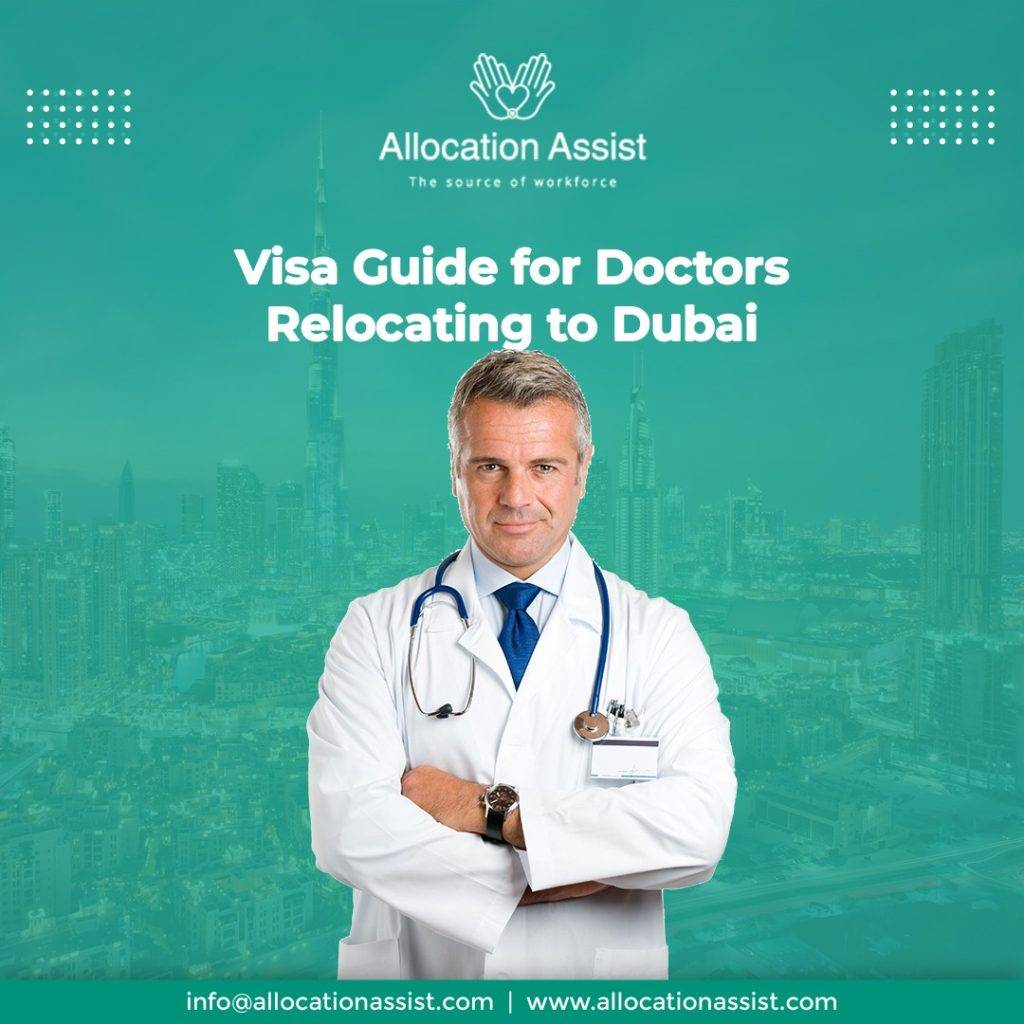
When relocating to work in Dubai, navigating the residency and visa system may seem a bit confusing at first. Many doctors and other healthcare professionals we recruit ask us about the different types of visas.
- What type of visa do I need?
- What is the difference between Entry visa, Employment Visa and a Golden Visa?
Employment Entry Visa
If you are coming to the UAE with a valid employment contract, your employer will obtain an Employment Entry Visa for you. This allows you to remain in the country for 60 days from the date of entry until the completion of the requirements for obtaining your residency visa.
You cannot sign a long-term tenancy agreement before you obtain your residence visa and Emirates ID. Therefore people usually stay in a hotel or other temporary accommodation for around 4 to 6 weeks. However, this does provide an opportunity to get to know the different residential areas before you decide where to live.
Work Residency Visa
A work or employment visa is usually valid for 2 or 3 years and renewable if you continue with the same employer. Your employer is required to cover all recruitment and visa-related costs. The residency visa application process involves a medical fitness test and fingerprint biometrics for the Emirates ID.
Residency status allows you to work in the UAE, open a local bank account, apply for a driving UAE licence and buy a car, obtain a tenancy agreement or purchase a property, sponsor residency for your spouse or dependents and register your children in government or private schools.
Also see our Guide to Obtaining Resident Status in Dubai.What if I am bringing my family with me?
If your family is travelling with you, they can initially enter the country on a tourist visa (or visa on arrival) and then do a ‘change of status’ once their residency visa is approved. Alternatively, you may arrive first and complete the formalities and arrange accommodation for the family in advance.
This UAE government website link contains more detailed information on sponsoring family residence. Also see
Golden Visa
Doctors and many other healthcare professionals can now apply for the 10 year Golden visa.
What are the benefits of the Golden Visa?
- Allows you and your immediate family to work, live and study without needing an Emirate
- Valid for 10 years and easily
- Permits the ability to stay outside the UAE for more than the usual period of six months without invalidating your
How can I apply for the Golden Visa?
All doctors and some other healthcare professionals licensed by the country’s health regulatory bodies can apply for the golden visa via the Federal Authority for Identity and Citizenship (ICA) website smartservices.ica.gov.ae. Doctors licensed in Dubai can apply through https://smart.gdrfad.gov.ae/ SmartChannels Th/HomePage.aspx
For more information on visas and residency see: https://u.ae/en/information-and-services/visa-and-emirates-id
-
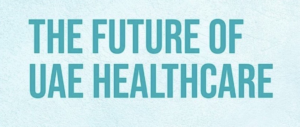
The Future of Healthcare in the UAE
- BY Emilie
Read Articles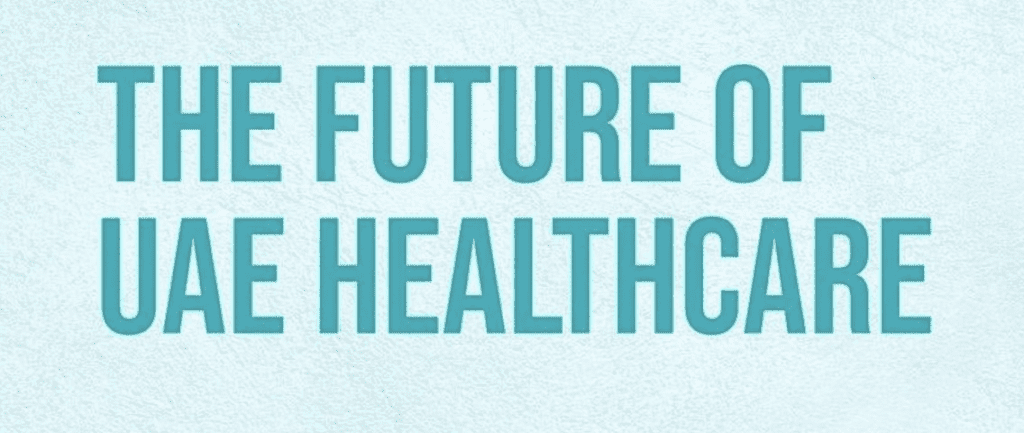
On the 21st October 2022, Advance Health hosted an extremely interesting session on the future of healthcare in the UAE in Dubai Science Park. Presentations were given by Dr Nahed Abdulkhaleq Monsef, Director of Strategy, Dubai Health Authority and Dr. Omar Najim, Director of Executive Affairs and Special Projects Office, Department of Health, Abu Dhabi. Dr Ali Allesandro Ayach, Senior Director at Alvarez and Marsal, Strategy and Performance Improvement, Dubai, also joined the panel discussion which was moderated by Marwan Abdulaziz, Senior VP of Dubai Science Park.
Key topics included how digitization is becoming more prominent in the field of medicine, the roles of key players in the industry and what the future holds for innovation and growth in the UAE’s healthcare sector.
How the UAE is turning challenges into opportunities
Despite the many challenges currently facing the world, under the wise leadership of the country’s rulers, the UAE is continuing to grow and develop. The UAE welcomes people from all over the world and is seen as a safe and attractive country to work, live and invest in. The UAE was ranked first in the world for COVID-19 vaccination rates (Our World in Data, 2021) and testing rates (Statista 2020). In 2021 Bloomberg ranked Abu Dhabi in first place and Dubai 6th for COVID resilience. The UAE is a global logistics hub and played a vital role in COVID-19 vaccine supply chain solutions through the HOPE Consortium of partners. With continuing research and development, the UAE is working to be ready for new challenges and emerging diseases.
Life expectancy in the UAE is increasing but, as in other countries, so is the burden of chronic diseases such as cardiovascular and musculoskeletal diseases, and mental health issues. Responding to changing needs and expectations of its citizens and residents, the UAE’s healthcare system is shifting its focus to holistic, personalised and preventive care. Innovative technologies are being leveraged to provide integrated, value-based care to improve clinical outcomes and health indicators.
The UAE’s growing healthcare sector
Although oil was the initial driver of economic growth in the UAE, the country has diversified its economy into many sectors, including healthcare and innovation. The UAE’s GDP is increasing, along with healthcare expenditure. Average healthcare expenditure per capita in the GCC (Gulf Cooperation Countries) is forecasted to grow by 9% CAGR. A strong private sector, in collaboration with government entities, is driving growth in healthcare infrastructure, capacity and access to specialised care.
The strategy from the Department of Health in Abu Dhabi includes enabling healthier lifestyles, creating high quality care delivery models to improve outcomes and ensuring a responsive and resilient health system. The UAE healthcare system is well regulated, with mandatory health insurance coverage, provided by the government for Emirati citizens and mostly by employers for expat residents. However, some gaps still need to be addressed to achieve 100% universal health coverage. The UAE is also fast becoming a regional and global hub for medical tourism. Medical education, research and development within the country are also growing. Life-science research and innovation are facilitated by many initiatives such as Dubai Science Park, the Department of Health’s Research and Innovation Center and the Al Jalila Foundation multidisciplinary medical research centre.
Digital innovation for health
Digital innovation is the key driver of growth in the UAE’s healthcare sector. This is demonstrated by a variety of initiatives such as:
Virtual care platforms
In the UAE, there has been significant investment in telemedicine and virtual care services by public and private healthcare providers, as well as health insurance companies.
Robotic-assisted surgeries
Robotic-assisted surgery is available in many hospitals across the UAE. It enables procedures to be performed more precisely and accurately, with less complications.
3D printing and simulation technology
3D printing and simulations are being used for many applications in surgery and medical education in the UAE.
Unified health information exchanges
Malaffi in Abu Dhabi and Nabidh in Dubai are unifying digital medical records to increase care coordination and reduce duplication. Patients can securely access their own medical records and control permissions for access by public and private healthcare providers. There are plans to integrate the health information exchange systems within the UAE in future.
Genome sequencing and precision medicine
The Emirati Genome Programme plans to sequence the genomes of 1 million Emirati citizen volunteers. The results will provide valuable data on population health and eventually lead to the development of personal gene therapy and precision medicine. Regulation of this field is paying careful consideration to issues of ethics, consent, education, and data protection.
Future opportunities and challenges
Investing in the future
The UAE, as a logistics, manufacturing and innovation hub for the region will continue to be a magnet for talent and investment. However, there is a need for more investment, especially for home- rown investors to move into the healthcare innovation sector. There was a discussion that venture capital involves taking risks and investors need to focus on opportunities and growth over the long term.
The UAE has instituted a Health Technology Assessment process.to evaluate the value of proposed new technologies for healthcare. In order to take full advantage of new technologies in healthcare, insurance coverage is required, and it was discussed that ICT and CPT insurance codes are currently under review.
Investing in the workforce
The healthcare workforce in the UAE, and the ability to recruit, train and retain talent in the country, is crucial. Further unifying medical licensing between the different authorities in the UAE will be beneficial.
The future of healthcare will see growth in the use of artificial Intelligence, machine learning and automaton. New competencies and skills will be required, with the need to invest in AI engineers, data scientists and data governance experts. With the increasing popularity of the metaverse, virtual and augmented reality, healthcare needs to catch up. This requires investment in both technology and training healthcare professionals.
Ensuring robust regulation
Digital healthcare technologies produce large volumes of personal and sensitive data which require robust regulation to ensure biosecurity, cyber- ecurity and data protection. Policies are also required to regulate access to data for research purposes. As global health providers increasingly provide cross-border care, this also needs international regulation.
In summary
The innovative and growing healthcare sector in the UAE is well-placed to take advantage of new technologies and increasing digitization. With continued robust regulation and investment in research and development, the UAE is set to further establish itself as a hub for high quality healthcare and innovation.

Watch the full session here #DubaiSciencePark#healthcare #innovation #medicine #uae
Advance Health by Dubai Science Park organises regular sessions on exciting topics linked to the healthcare industry. The next meeting is planned for 25th November.
-
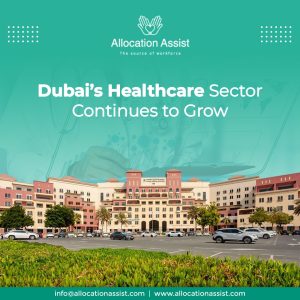
Why is the UAE healthcare sector growing and what ...
- BY Emilie
Read Articles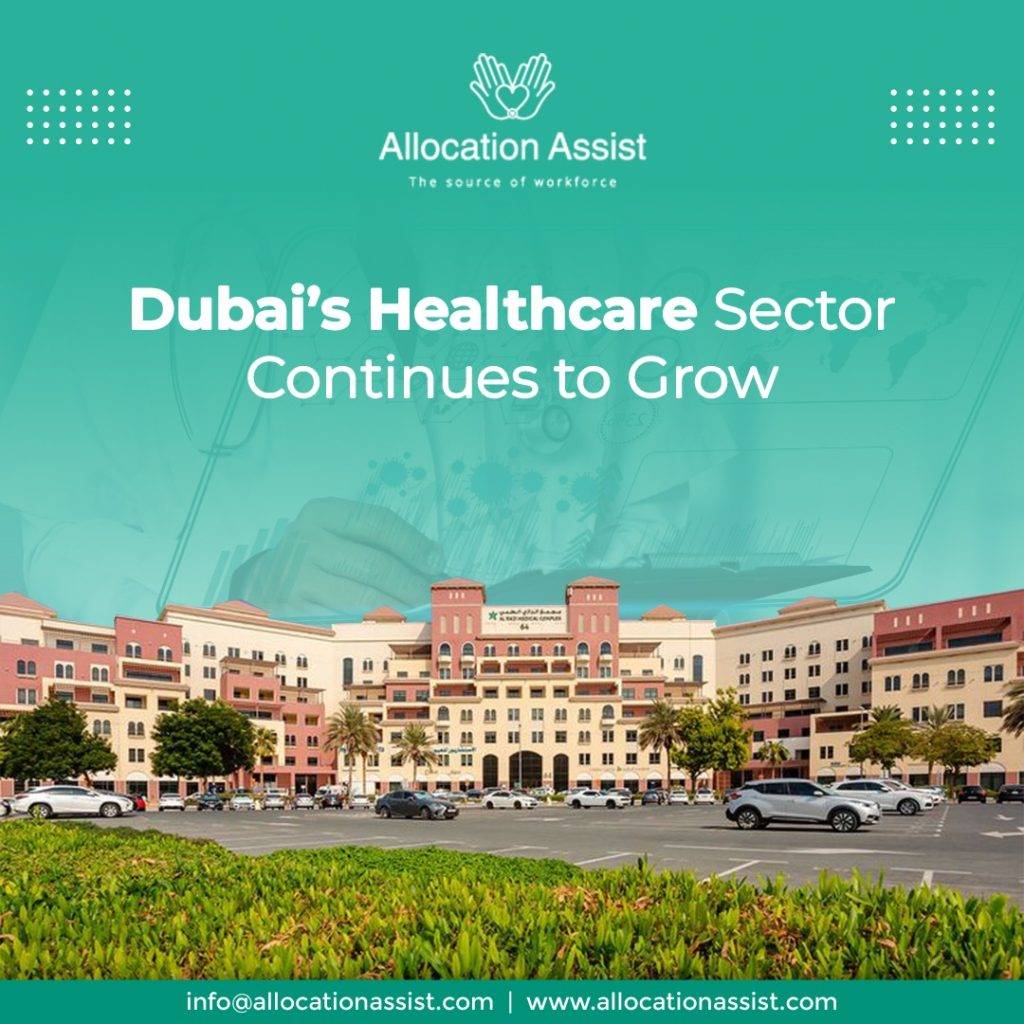
The healthcare sector in the United Arab Emirates is one of the most rapidly evolving in the region with the highest number of JCI accredited hospitals in the Middle East.
By the end of 2020 there were 162 hospitals in the UAE, with this number continuing to grow.
In Dubai, there has been a 61% increase in the number of licensed medical practitioners and a 45% cent growth in private medical facilities from 2017 to 2022.
What is driving this growth and what does this mean for highly skilled doctors looking for new opportunities?
Growing population and economy
The UAE’s diversified economy has proven to be resilient. Following the challenges associated with the COVID-19 pandemic, the UAE’s population and GDP are growing. This is driving investment in healthcare infrastructure, capacity and access to specialised care.
Vision and Leadership
The remarkable development in the UAE’s healthcare system has been driven by the government’s vision and strategic planning to provide access to high quality medical services that are on par with international standards for all citizens and residents. This has been backed by investment from both the public and private sector.
Mandatory health insurance
Medical insurance is compulsory for all residents in Abu Dhabi and Dubai, with this requirement being extended to other emirates in the UAE from 2023. Health insurance coverage is provided by the government for Emirati citizens and employers are mandated to provide cover for their expat employees.
Prevalence of chronic diseases
As in other parts of the world, the prevalence of chronic and lifestyle-related diseases, such as diabetes and obesity is increasing. Despite efforts to promote prevention and healthier lifestyles, this trend is set to lead to increased demand for health services for the foreseeable future.
Medical tourism
The UAE is establishing itself as a popular destination for patients seeking high quality, accessible medical care. The Medical Tourism Index 2020-21 ranked Dubai as the top destination in the Middle East and in 6th place globally, with Abu Dhabi also in 9th place. Medical tourism portals in the UAE, such as Dubai Health Experience (DXH, bring together a consortium of recognised, quality-assured healthcare providers and facilitators to optimise the medical tourism experience.
Digital innovation for health
Digital innovation is the key driver of growth in the UAE’s healthcare sector. This is demonstrated by a variety of initiatives such as virtual care platforms, robotic-assisted surgeries, 3D printing, Artificial Intelligence, Genome Sequencing and Precision Medicine.
Medical education and research
There has been significant investment to expand medical education and training, with a growing number of medical colleges and nursing schools. Collaborative partnerships with both public and private organisations are advancing medical and specialist training. The UAE provides a supportive environment for research and is fast becoming a regional hub for conferences and events. The establishment of the new Dubai Academic Health Corporation is part of the broader strategy to advance research.
What does the growth of the UAE healthcare sector mean for you?
There are opportunities within the dynamic and growing UAE healthcare sector for doctors, nurses and other healthcare professionals with the right qualifications, skills and experience, with some specialities particularly in demand. Western-trained doctors, especially those with advanced fellowships post-specialisation are sought after to bring new skills and techniques to the region.
-

Postgraduate Medical Training in Dubai
- BY Emilie
Read Articles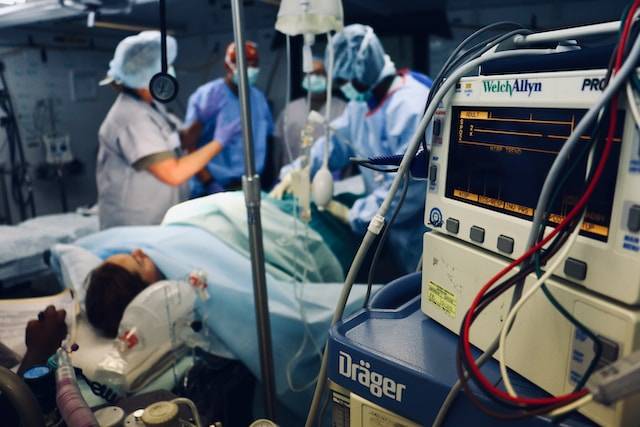
Did you know that Dubai offers internship, residency and fellowship training programmes?
Dubai is investing in its medical education and training capacity, The number of both undergraduate and postgraduate training opportunities is steadily increasing.
A well-regulated postgraduate medical training pathway acts to strengthen Dubai’s dynamic and growing health system and also provides specialists working in Dubai with opportunities for teaching and mentoring junior doctors.
Medical and specialist training in Dubai is regulated by the Dubai Health Authority (DHA) and the Dubai Academic Healthcare Corporation (DAHC), established in 2021 to advance health services to integrate healthcare, medical education and scientific research.
Current postgraduate training opportunities in Dubai
Mohammed Bin Rashid University of Medicine and Health Sciences (MBRU) Dubai’s leading medical school is a key provider of reputable postgraduate training programs to cater for the rising need and demands of doctors in the region. MBRU are currently accepting admissions for 2 internship and 18 residency programmes across multiple specialties including but not limited to paediatrics, internal medicine, anaesthesia, radiology, general surgery, orthopaedics and trauma, emergency medicine, obstetrics and gynaecology, and neurosurgery.
The DAHC currently offers 13 fellowship accredited programs in various subspecialties such as paediatric otolaryngology, paediatric orthopaedics and trauma, adult endocrine, child and adolescent psychiatry, and adult pulmonology. Specialist training programs are running across DAHC facilities, which include government sector hospitals such as Rashid Hospital, Dubai Hospital, Latifa Hospital, Al Jalila Children’s Specialty Hospital and Dubai Dental Hospital.
All specialist training programmes are accredited by the Accreditation Council for Graduate Medical Education (ACGME-I) and provide competency-based training through a well-structured curriculum that reinforces learning through research activities, soft skill development, and medical simulation supported by advanced learning resources.
To foster and promote opportunities for medical education, a growing number of private hospitals in Dubai now offer internships under the authority of the DHA. These include but are not limited to American Hospital, Saudi German Hospital, Mediclinic Middle East, Aster DM Healthcare, Medcare, and Fakeeh University Hospital.
The other emirates in the UAE also have their own training programme, regulated by the DOH in Abu Dhabi and Emirates Health Services in the northern emirates.
Looking towards the future
As the healthcare sector in Dubai continues to grow and develop, opportunities for medical education and specialist training will continue to expand. Where previously doctors in the region have gone abroad for training, Dubai is strengthening its local capacity for the benefit of its healthcare system and patient outcomes.
